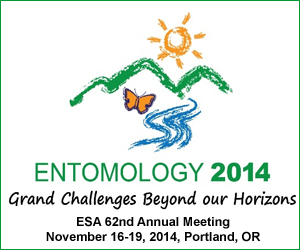The evolution and loss of complex behaviors in social insects: Silk weaving and arboreal nesting in Polyrhachis spiny ants
The evolution and loss of complex behaviors in social insects: Silk weaving and arboreal nesting in Polyrhachis spiny ants
Wednesday, March 12, 2014: 9:42 AM
Dubuque (Des Moines Marriott)
To investigate the evolution of complex behavioral characters and test the monophyly of the spiny ant genus Polyrhachis and subgenera, three mitochondrial and three nuclear genes were sequenced. To infer the evolutionary history of silk weaving and nesting preference, we inferred the phylogeny, preformed ancestral state reconstructions and correlation analyses. We find support for the monophyly of the genus and most of the subgenera. Our results strongly support silk weaving, which is rare in ants, and arboreal nesting as the ancestral states in the spiny ants with secondary loss of these behaviors. We find strong statistical support for the correlation of these traits. These results show that this complex trait did not evolve through behavior progression as had been previously hypothesized.


